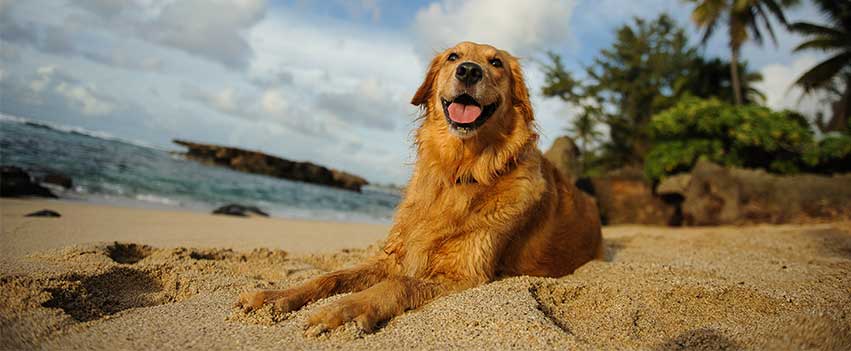From the Star Advertiser.
Fido and Kitty, if you’re reading this, beware of humans!
Some Hawaii veterinarians are recommending pets practice social distancing because of COVID-19.
Other vets prefer not to alarm pet owners since the likelihood of transmission from human to animal is rare, and the virus is not known to spread from pet to human.
“Everybody has to hold off on letting people pat their dog, the same way you wouldn’t let somebody touch your child or your car,” said Dr. Scott Osgood. If people have the virus “on their hands or cough on a dog, and you pet your dog, you’re taking those exhaled droplets off the dog and touching your face.”
Dr. Melanie Pearson of PetVet Animal Hospital recommends social distancing, though she says the virus doesn’t last as long on fur, due to its porous nature, compared with hard surfaces. “When walking and approaching someone, you still have to stay 6 feet apart,” she said. “You shouldn’t pet other people’s dogs when walking.”
However, the Hawaii Veterinary Medical Association does recommend if people are sick, even if they are diagnosed with the new coronavirus, not to remove a pet from the household.
“If there is someone else who can take care of the pet, that would be recommended,” said Dr. Jill Yoshicedo, HVMA executive vice president and a Honolulu Zoo veterinarian. Owners who live alone should have a backup plan if diagnosed and have to be hospitalized, such as arranging for family or friends to care for the pet.
“If you are the only one there, try not sleeping with, hugging or kissing your pet,” Yoshicedo said. “Try to avoid contact with your pet. Wear a mask — same like you would if you were trying to care for your baby.”
The state veterinarian late Thursday approved testing animals on a case-by-case basis at the Hawaii State Veterinary Laboratory in Halawa for the coronavirus, but several strict criteria must be met, including that the pet must have been exposed to someone with COVID-19.
The decision to test some Hawaii pets follows the April 5 announcement of a tiger at the Bronx Zoo being infected with COVID-19, presumably from an asymptomatic zookeeper with the disease. Several other tigers and lions at the zoo also displayed symptoms of the disease, but all are recovering.
During feeding, zookeepers get within feet of the big cats on opposite sides of a barrier, the zoo’s chief veterinarian told The New York Times.
And two dogs and two cats have tested positive in different types of tests in varying degrees for the COVID-19 virus. All four had owners with COVID-19.
“It appears that dogs and cats are not readily infected with (the COVID-19 virus). We have little to no evidence that they become ill, and no evidence that those that may be naturally infected spread (the virus) to other pets or people,” the American Veterinary Medical Association says on its website.


